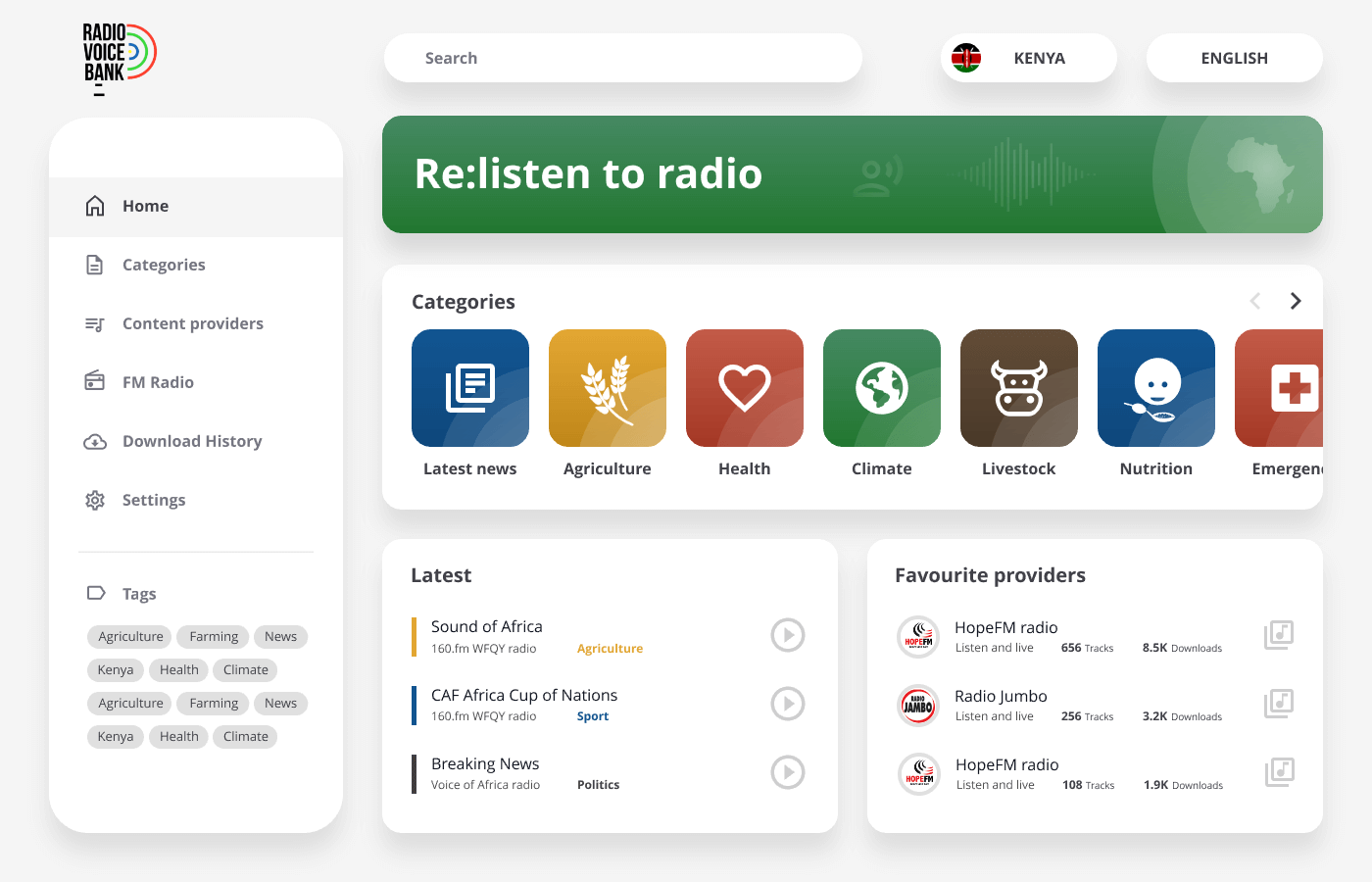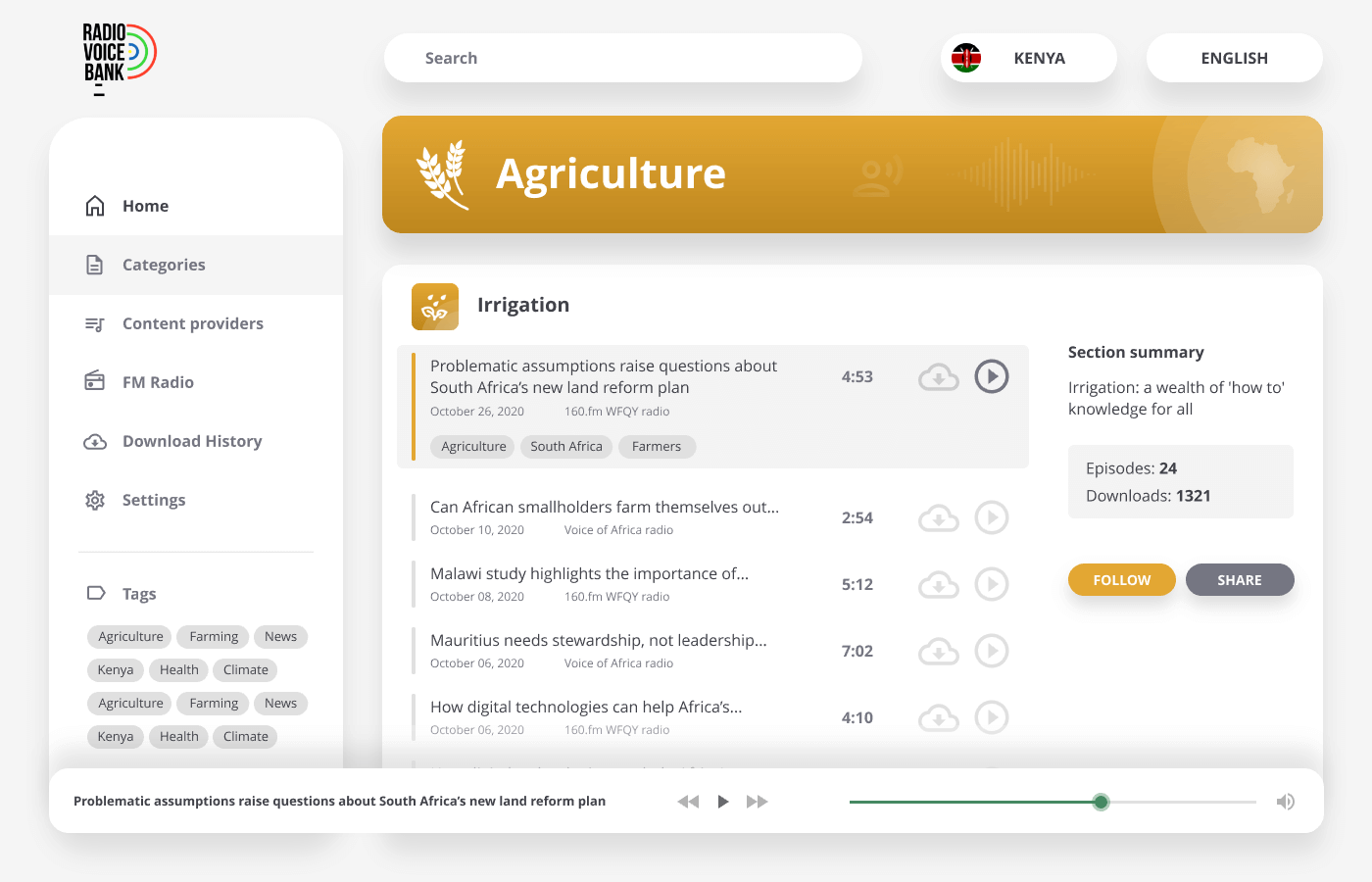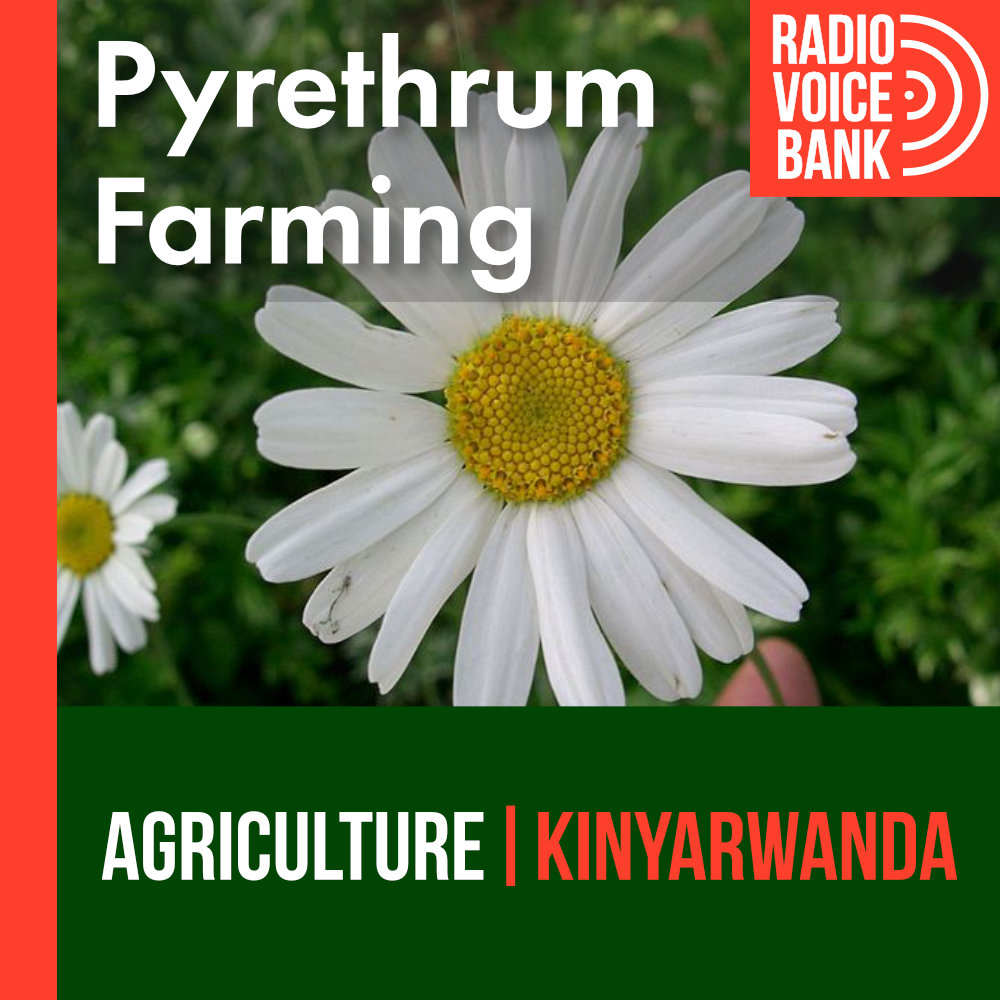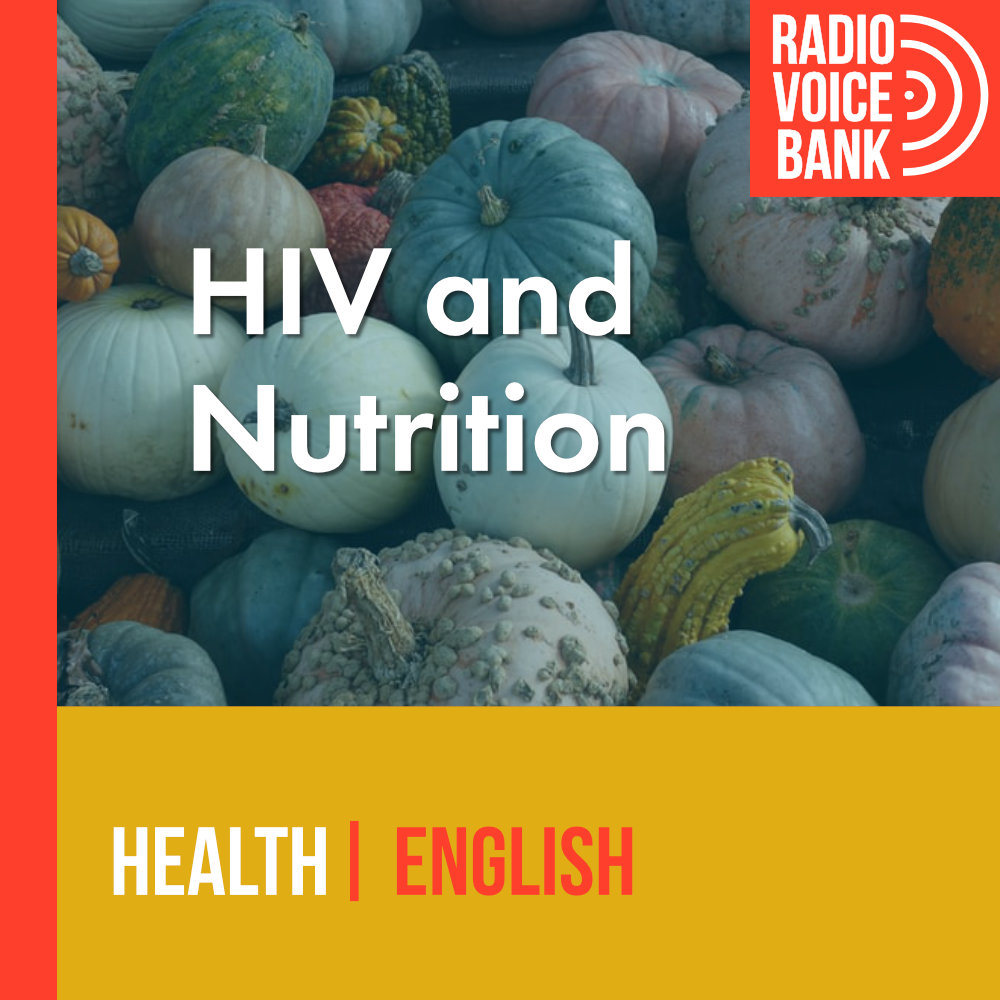
re:listen to radio
Radio Voice Bank is a place to save and provide free, downloadable radio content in many languages for repeated use by African listeners, focusing on rural women, children and communities.
Video Introduction
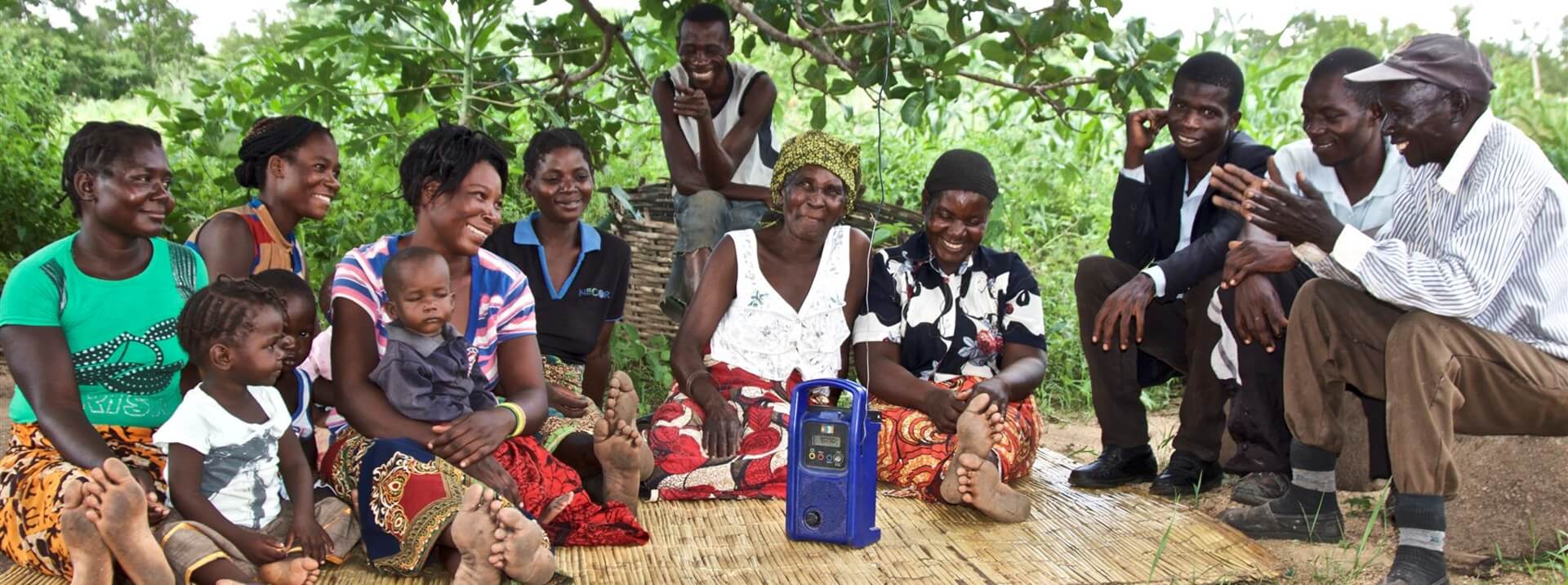
Extending the lifespan of radio programmes
Radio Voice Bank is the world’s first open library of audio content for African listeners with limited access to information in their language. It has the potential to impact millions of lives.
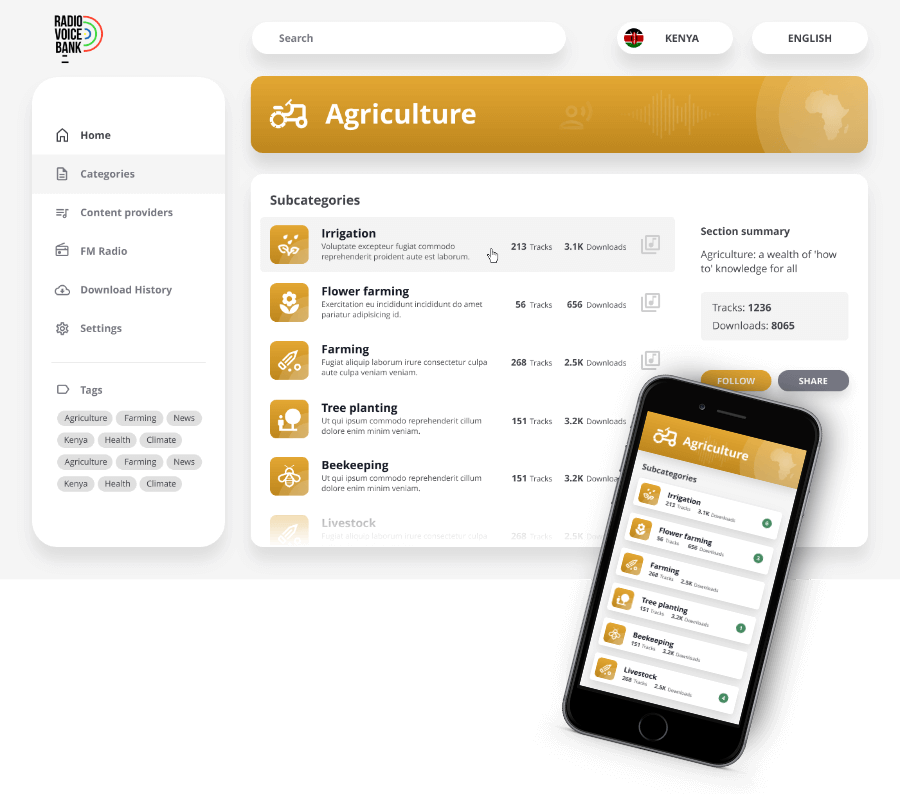
Information poverty brings dire, life-long and often life-threatening consequences. Information is a universal human right – integral to realising the SDGs and improving and saving lives.
Information poverty plagues rural Africa. Women and girls are often disenfranchised and disempowered due to lower literacy/digital literacy levels, access to communication means and lack of content in languages they understand. This is severely limiting to their ability to take up new knowledge and technologies.
Without information people cannot respond effectively to what happens around them. Dangerous misinformation and fake news can be more influential than factual information. We are seeing this globally during the Covid-19 pandemic with fake news spreading faster than the virus.
This global issue affects developing countries most, where contributing factors include media capture by state and vested interests, lack of electricity, under-resourced education infrastructure and cultural norms that disadvantage women.
An Audio Bank
A place to save and provide free, downloadable radio segments.
Huge amounts of donor time and money are poured into creating informational radio programmes on health, education, farming, gender-based violence, entrepreneurship, news, entertainment and more. Yet once aired, they are forever lost. No central platform exists where content creators (NGOs, radio stations and media outlets) can permanently archive and distribute their content in a free and user-friendly way.
Radio Voice Bank leverages content invested by donors, community radio stations and others to increase the reach and lifespan of radio content and identify and fill knowledge gaps.
Content creators and topic experts can use Radio Voice Bank podcast technology to distribute relevant, meaningful and useful content. Content can be made available in the source language or translated into a range of local or more widely spoken languages, such as Swahili.
Radio Voice Bank will be the first open-source, comprehensive and searchable library of curated audio content starting with African listeners. It will be a podcasting platform that builds on rich traditions of oral history and enables individuals, community groups, health, agriculture, and education providers to easily search, download and learn from trustworthy content via smart and feature phones in mother tongue and national languages.
How will it work?
The RVB website will be populated via an API with audio files delivered from Airtime Pro, which was developed by Prague-based technology non-profit Sourcefabric. Audio content will include already-aired segments from local community radio stations, as well as content created by NGOs, health providers, governments, UN agencies and others. RVB content will be sourced by RVB staff and loaded by content creators into Airtime Pro, where structured tags, keywords, and categories will be applied to make it findable by a variety of search methods.
In addition to the on-demand RVB podcast platform, Airtime Pro will enable 24/7 streaming of scheduled programming for content shared by community radio stations. Streaming will be via the internet and FM stations.
Our audience
Listeners
Key audiences are rural women and girls – those least likely to have information access in a language they understand. Other listeners include aspiring entrepreneurs, farmers, students at all levels, displaced populations, livestock keepers, the disabled and anyone without regular radio access. Geography, poverty, or cultural gender norms restrict all radio listening.
Creators
Content developers who want to reach a broader audience, including community radio stations, news broadcasters, NGOs who create radio content in vernacular languages and others who are trying to reach, teach, inform and entertain.
Many African communities don’t have written records of their past. Their histories were passed on from one generation to the next by elders or storytellers. Radio Voice Bank will be a place for local communities to capture and preserve stories, legends and music from the past.
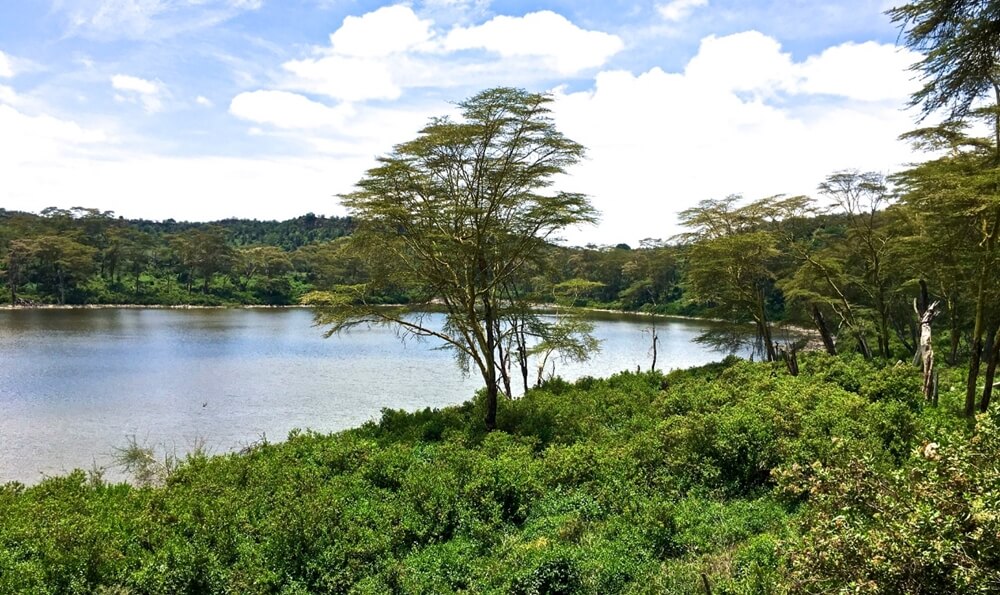
A Collection Point
Radio Voice Bank is one central podcast platform that is:
- Diverse: A rich repository of content on different topics in local languages
- Trustworthy: Curated to ensure that the information is relevant and from trusted sources; religious or political content will be excluded.
- Searchable: Content will be tagged by type, subject, language and audience, hotline number allows searches via voice prompts.
- Portable: Available for download and transfer to other devices in MP3 format for maximum usability in low-bandwidth environments.
- Comprehensive: Hundreds of channels managed by content providers and communities.
Technology Partner

About Sourcefabric
Sourcefabric is Europe’s largest open-source software developer serving the news media. Headquartered in Prague, Czech Republic, Sourcefabric z.ú. is a nonprofit organisation that brings together journalists, business analysts, software developers, and communications professionals to create powerful tools that are open source. Sourcefabric’s products, which are used by newsrooms around the world, include Superdesk, professional live blogging tool Live Blog, and radio automation platform Airtime Pro.
Part of Sourcefabric’s mission is helping independent news organisations in challenging media environments develop and scale open-source technology to power news-making operations that easily and securely deliver content to audiences.
Kenyan pilot details
Kenya is an excellent country in which to undertake our research and to test out Radio Voice Bank. With its 91 community and commercial FM radio stations and a “radio-active” population – 70% of the population live in rural areas and depend on radio. The main rural occupation is farming.
Kenya has 62 languages, high levels of illiteracy in pastoral communities and a large number of tech-savvy youth. We also have an 20-year track record of working all across Kenya and have a strong network of connections.
Phase 1 will take place in farming communities in Meru county and livestock-keeping Maasai communities of Kajiado and Narok counties. The population of these counties is 2.5 million. We believe these counties are representative of wider East Africa and many parts of sub-Saharan Africa overall.
Does this interest you?
Radio Voice Bank is a project initiated by Lifeline Energy. For more information contact hello@lifelineenergy.org.

